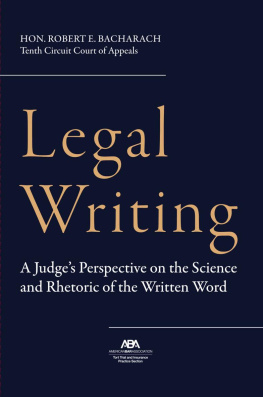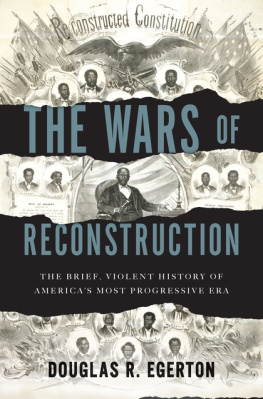Robert Egerton - Legal Aid
Here you can read online Robert Egerton - Legal Aid full text of the book (entire story) in english for free. Download pdf and epub, get meaning, cover and reviews about this ebook. year: 2013, publisher: Routledge, genre: Science. Description of the work, (preface) as well as reviews are available. Best literature library LitArk.com created for fans of good reading and offers a wide selection of genres:
Romance novel
Science fiction
Adventure
Detective
Science
History
Home and family
Prose
Art
Politics
Computer
Non-fiction
Religion
Business
Children
Humor
Choose a favorite category and find really read worthwhile books. Enjoy immersion in the world of imagination, feel the emotions of the characters or learn something new for yourself, make an fascinating discovery.

- Book:Legal Aid
- Author:
- Publisher:Routledge
- Genre:
- Year:2013
- Rating:5 / 5
- Favourites:Add to favourites
- Your mark:
- 100
- 1
- 2
- 3
- 4
- 5
Legal Aid: summary, description and annotation
We offer to read an annotation, description, summary or preface (depends on what the author of the book "Legal Aid" wrote himself). If you haven't found the necessary information about the book — write in the comments, we will try to find it.
Legal Aid — read online for free the complete book (whole text) full work
Below is the text of the book, divided by pages. System saving the place of the last page read, allows you to conveniently read the book "Legal Aid" online for free, without having to search again every time where you left off. Put a bookmark, and you can go to the page where you finished reading at any time.
Font size:
Interval:
Bookmark:


In 15 Volumes

Robert Egerton
A. L. GOODHART

by Routledge
2 Park Square, Milton Park, Abingdon, Oxon, OX14 4RN
A CIP catalogue record for this book
is available from the British Library
| CHAP. |
| The accessibility of the courtsExpense of normal legal procedureCheaper justice through reformsEquality before the lawThe extent of the problemThe consequences of inequalityFinancial considerationsThe need for examination of the legal aid system |
| Concessions to poor suitors up to the sixteenth centuryStatutes of Henry VII and Henry VIII providing free writs, free representation and non-liability for costsDissatisfaction with pauper litigationThe imposition of fees in pauper casesThe procedure in ChanceryThe ineffectiveness of the 1883 Rules of Court |
| The necessity for reformThe Poor Persons' Rules, 1914Findings of the 1919 CommitteeInstitution of deposits for out-of-pocket expenses and abolition of office expensesLack of conducting solicitorsThe 1923 CommitteeTransfer of control to the Law SocietiesGrowth of Poor Persons' workThe Welsh Law SocietiesWartime congestionThe Services Divorce Department |
| House of LordsCriminal cases Civil cases in the Police CourtThe County CourtThe Bentham CommitteeSome other organizations concerned with poor litigants |
| Poor Man's Lawyer centresPoor Man's Lawyer AssociationsWartime developmentsCitizens' Advice BureauxCambridge House Free Legal Advice CentreCitizens' Advice Bureaux scheme for the provincesThe Services Legal Advice scheme |
| ScotlandNorthern IrelandThe British EmpireTypical Continental systems : AustriaBelgiumSwedenRussiaU.S.A.Comparative analysis of legal aid : Countries where there is no legal aidNo legal adviceAssistance limited to certain types of case or certain courtsEvidence of prima facie caseEvidence of povertyFixed monetary testsPartial legal aidThe authority making the grant of aidAppealsThe benefits of a grantPayment of advocatesTreasury assistance with out-of-pocket expensesLiability of the poor person and his opponent for costsThe training of young lawyers |
| CHAP. |
| Grant of certificates by practising lawyersCriticism by the Court of AppealThe worthiness of applicants Discretion casesOther objections to the present practiceGrant of certificates by the courtsAppeal against the refusal of a certificateThe test of a prima facie caseRight of an opponent to oppose an applicationConciliation methods |
| Financial limits and the cost of livingThe means of the familyFixed limitsEvidence of meansPart paymentDisbursements and depositsObtaining evidenceThe need for a fund |
| Existing provisions as to costsHistory of opponent's immunityInfluence of legal etiquette and theoryCriticismPoor person's liability for his own costsLiability for his opponent's costsLimitation of executionIndemnifying the opponent |
| The criminal provisionsSmall feesFew certificates granted by magistratesThe Public Defender systemThe House of LordsDisbursementsRepresentation Civil cases in the Police Courts and County CourtsAbsence of provisions criticized by Court of AppealRemission of court feesThe need for representationComplexity of casesArgument that the judge is advocate for the unrepresented partyTrade unionsCharitable organizationsSpeculative solicitorsCost of County Court casesLack of assistance in parts of the countryOpposition of legal professionSmall Claims Courts |
| The necessity for legal adviceDefects of charitable arrangementsThe place of legal advice in the legal aid schemeAdvantages of legal advice centresRotas of solicitors or bureaux with a permanent staff? |
| The need for negotiation and conciliation and non-contentious workObjections to a Government DepartmentDifficulty of paying private firms of solicitors out of public fundsAdvantages of legal aid centres conducting negotiations and possibly litigation in free casesLegal education at legal aid centres Reduced fee schemes in the U.S.A.Necessity for work at reduced feesAdvantage of fees being based on solicitors' scale charges |
| Requirements for a thorough legal aid schemeImpossibility of meeting the requirements on a charitable basisReforms delayed owing to the financial burden on the legal professionNo prospect of raising the necessary funds from charitable subscribersDiscussion of insurance scheme proposalsFinancial responsibility of the StateLocal authorities and other possible sources of funds |
| Necessity for unified control of the whole legal aid schemeBodies which might control the schemeA Government DepartmentLocal authoritiesPoor Man's Lawyer CentresThe Law SocietiesA composite bodyShort outline of the working of the proposed scheme |
Font size:
Interval:
Bookmark:
Similar books «Legal Aid»
Look at similar books to Legal Aid. We have selected literature similar in name and meaning in the hope of providing readers with more options to find new, interesting, not yet read works.
Discussion, reviews of the book Legal Aid and just readers' own opinions. Leave your comments, write what you think about the work, its meaning or the main characters. Specify what exactly you liked and what you didn't like, and why you think so.






